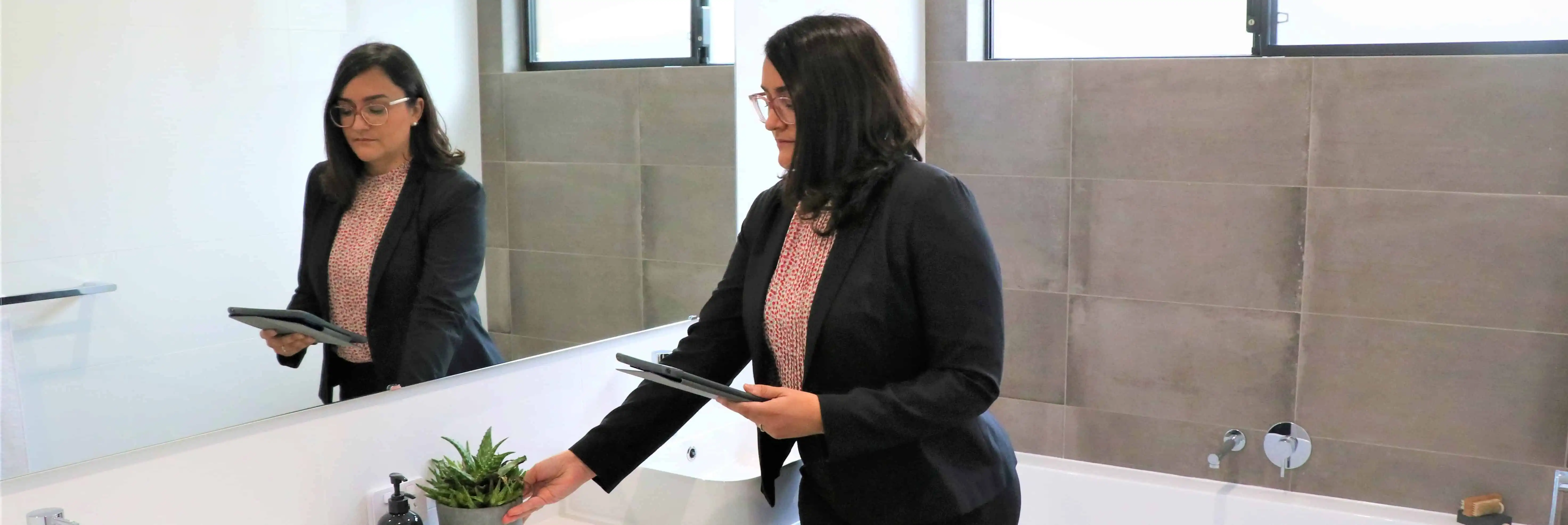How to Prepare Your Property for Rent

Renting out your property can seem overwhelming. Even though the market is currently favourable for investors, you should still put your best foot forward when listing your property for rent.
As a landlord, you should prepare your property so that it’s market ready and meets all of the expected requirements.
Our General Manager Clare Christiansen, has provided her expert steps for setting up your property to attract a good quality tenant.
Present Your Property in the Best Possible Condition
A well-presented and tidy property is always attractive to potential tenants. Consider having your property professionally cleaned, including carpets, so you can have time to work on other things.
When it comes to decorating your property, you don't need to spend a lot to spruce it up enough to make it feel cozy and loved. Let natural light in and make sure the windows and blinds are clean from the inside and out. Allow enough time to work on areas that require more attention, like kitchens and bathrooms and make sure that everything is ready for your potential tenant to move in quickly.
Remember, first impressions count. It is also important to clean your outdoor space, should you have one. Have your shrubs trimmed, your lawn mowed, and choose low-maintenance plants for your garden.
Doing this initially sets the tenancy expectations and allows people to envision themselves living in the property for the foreseeable future.
Take Safety Regulations Seriously
The safety of your property should always be a top priority. As a landlord, adhering to the safety requirements and regulations is essential and can save you from severe complaints and fines from non-compliance.
Critical items to review:
- Have an electrician check the Residual Current Device (RCD) or safety switch and ensure that the smoke alarm is in date and working. These items should meet the Electrical Equipment Safety Scheme (EESS) regulations, and the electrician should provide you with an Electrical Safety Certificate for your records.
- Entry to the property is secure and accessible. Review the security standards such as the lights, security locks, and window safety.
- Check keys for the property, ensure you have sets for all the locks, and if not, can these be obtained, change or cut beforehand. It’s a good idea to have at least two complete sets available for the property, one for the tenancy and one for yourself or your property manager.
- Ensure blind cords or chains are secured with a cleat and out of reach for young children, even if your new tenants don't have kids - you never know who could be visiting the home.
- Walk through the property inside and out, assess potential safety and health hazards, and organise any works or repairs to make it safe.
- Ensure all furniture and appliances are in good condition and are working properly. Fasten free-standing furniture such as wardrobes in the home, garage or shed to walls.
- If applicable, have the pool cleaned, provide instructions for ongoing maintenance, or consider organising a pool handover for the new tenant.
Provide Tenants with Helpful Tips or Operating Manuals
It's a good idea to prepare a general manual for your potential tenants. Providing clear instructions on how to take care of your property can not only be beneficial to the tenant but can overcome unnecessary trade call-outs.
Even an unfurnished property can have its quirks. Create helpful tips or tricks for operating appliances, air-conditioners, hot water systems, smart-wiring, surround sounds, spas, pools, pumps, bores etc. Be sure to include any cleaning instructions for unique flooring, benchtops or appliances.
Choose the Right Agency for Your Property
it’s a good idea to hire a property manager to assist you with the day-to-day duties as a landlord They will oversee the day-to-day runnings of the property and will liaise with the tenant on your behalf.
A few points to bear in mind when hiring a property manager:
- What services do they offer?
- What experience do they have managing rental properties?
- How do they intend to advertise your property?
- Do they have excellent communication skills?
- What are their customer reviews like?
- Do they conduct regular property maintenance?
- What procedures do they have in place for repairs?
It may seem overwhelming at the start, but taking the time to ensure your rental property is prepared to be rented out will save you time and money and more importantly, mitigate any risks down the track.
Ready to get Started?
Talk to our team today and find out how we can help maximise your property's return.


.webp)
.webp)


